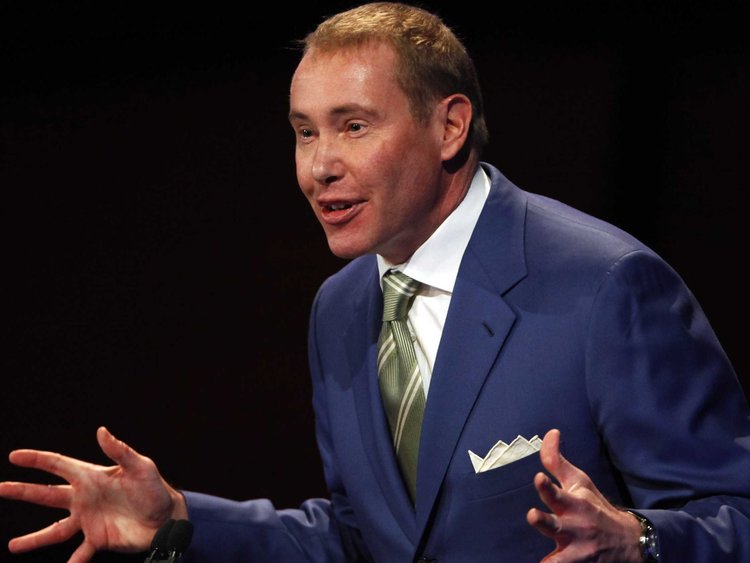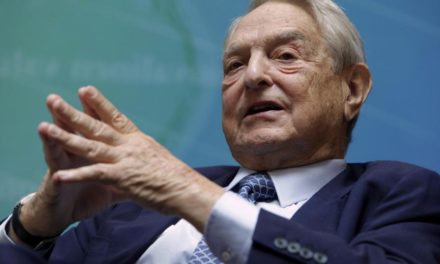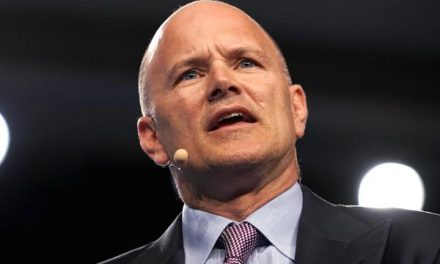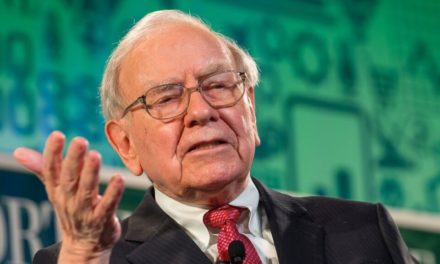Jeffrey Gundlach’s outlook for financial markets and the economy was recently aired on a Fox interview. For those unfamiliar with Jeffrey Gundlach here is a quick rundown.
The self-made billionaire investor walks with the financial giants. He has a net worth of $2 billion, his nickname is bond king and he is on the list 50 most influential list of Bloomberg Markets Magazine. Jeffrey Gundlach is the founder of Doubleline Capital.


“Jeffrey Gundlach’s outlook is somewhat tepid, he sees a 50% chance of a recession and he reckons that the Fed will cut rates sometime in the future”
Jeffrey Gundlach’s outlook is somewhat tepid, he sees a 50% chance of a recession and he reckons that the Fed will cut rates sometime in the future
“The Fed will talk about a lack of inflation which is kind of funny because when I was a kid progress on inflation means you were getting it down now progress on inflations means you are getting it higher,” said Jeffrey Gundlach.
Jeffrey Gundlach’s outlook with regards to the Fed’s monetary policy is that the Fed will need to march to the same tune as the market sentiment
“The fed needs to get in line with what the markets are saying some people are saying that the fed is being herranged by the president but it is really being herranged by the bond market,” said Jeffrey Gundlach.
Jeffrey Gundlach’s outlook is for a weakening economy going forward
“We at Double line have developed an awful lot of indicators that give us a forward look as to whether the economy might be weakening” said Jeffrey Gundlach.

“We at Double line have developed an awful lot of indicators that give us a forward look as to whether the economy might be weakening”
JEFFREY GUNDLACH
“One by one certain indicator has started to weaken, consumer confidence in the present is very high but consumer confidence on the future is very poor”, he added.
Jeffrey Gundlach is forecasting a recession within six to twelve months.
The inverted yield curve also strengthens Jeffrey Gundlach’s outlook for a pending recession
“The three-month bill yield compared with the 10-year treasury yield has every bit the look of a recession coming in 12 months and maybe six months because that rate is inverted,” said Jeffrey Gundlach.
Ironically, Jeffrey Gundlach’s outlook for the economy deteriorates even further should the Fed start easing
Here is the takeaway, “A lot of people think that if the Fed eases it will be an insurance policy against a recession but if past patterns are a prologue if we start steepening the yield curve from an inversion from 3 months to 10 years that is actually highly coincidental with the coming recession” said Jeffrey Gundlach.
“The next recession won’t be a housing crisis I think it will be a corporate debt problem and interest rate manipulation solution” – Jeffrey Gundlach
Jeffrey Gundlach’s outlook is bearish, it based on deteriorating data
“Economic data City bank has an index of data that compares current release with their 12 months moving average those are steeply in negative territory and have been all year and in the eurozone even for the last full year,” he added.
So there are plenty of indicators suggesting that a recession might be coming.
Consumer spending is at risk because of tariff fears. US President is making rhetoric talks about doing a deal to remove the tariffs. But that will put a halt on imports from China argues Jeffrey Gundlach.
“If you are going to buy something from China and get rhetoric talk that tariffs are going away in three or four months you are going to stop that buying decision now,” said Jeffrey Gundlach.
“Maybe the President is trying to get economy weak now so that consumer spending can rebound sharply in 2020 just in time for the presidential elections,” he added.
Jeffrey Gundlach’s outlook is negative for stocks if polls show more confidence in a democratic candidate.
“Democrats are vilifying corporate tax cuts which would likely be abolished under a democrat administration.
If the economy goes into recession and the president can root it out with tariffs there is very little for him (Trump) to run on.
If the economy doesn’t slip the president will win re-election”, he said. Jeffrey Gundlach saw the housing crisis develop well before the meltdown.
With Jeffrey Gundlach’s outlook deteriorating where does the billionaire investor see the next crisis in the financial markets
“The next recession won’t be a housing crisis I think it will be a corporate debt problem and interest rate manipulation solution” said Jeffrey Gundlach.
Jeffrey Gundlach believes that entire growth in 2018 was debt based, given the fact that the national debt grew by 6% GDP while nominal GDP grew by 5%.
“In the next recession we will see an enormous increase in national debt perhaps as high as 10% of GDP which would under natural market forces lead to higher long term interest rates exasperating the recession What might happen is that the Fed might have to start emulating ECB and BoJ and pegging interest rates down low enough so that there is no compounding problem with the debt,” he said.
“Yes, I was worried about the housing market back late 2006 but I am much more worried today about the corporate bond market” – Jeffrey Gundlach
Put another way Jeffrey Gundlach’s outlook is for more QE
The modern monetary theory that interest rates need to go at a level below economic growth is already in the mindset of our central banker.
In Europe, they talk about negative interest rates. Low-interest rates are causing proliferation of Zombies, they don’t want Zombies to disappear so they need even lower interest rates but it is the negative interest rates that cause the fragility argues Jeffrey Gundlach.
“So there is a circular logic where the negative interest rates are causing fragility but they think that the solution is even lower interest rates” said Jeffrey Gundlach
“Yes, I was worried about the housing market back late 2006 but I am much more worried today about the corporate bond market” he argued.
Jeffrey Gundlach’s outlook is standby for massive monetary easing in the next recession
That will pave the way for UBI. “I see big problems which are unfortunately the consequence of a debt monetary system” said Jeffrey Gundlach.
















